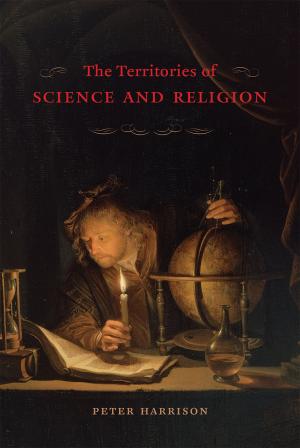This lecture series will offer a revised history of science-religion interactions in the West. It will consider the way in which religious concerns have shaped the study of nature over the past 2000 years, with a particular focus on the changing boundaries of science and religion.
It will be argued that these two ideas—science and religion—are distinctively Western and modern, that they are mutually interdependent, and that a recognition of their history will help revise our understanding of their present relations.
LECTURE ABSTRACTS:
1. The Territories of Science and Religion
So familiar are the concepts ‘science’ and ‘religion’, and so central to Western culture have been the activities and achievements that are usually labelled ‘religious’ and ‘scientific’, that it is natural to assume that they have been enduring features of the cultural landscape of the West. However, this view is misleading.
Only in the past few hundred years have religious beliefs and activities been bounded by a common notion ‘religion’ and set apart from the ‘non-religious’ or secular domains of human existence. The idea of natural sciences as discrete activities conducted in isolation from religious and moral concerns is even more recent, dating from the nineteenth century. Both categories, ‘religion’ and ‘science’, distort what they claim to represent.
2. The Cosmos and the Religious Quest
In antiquity and for much of the Middle Ages the formal study of nature—natural philosophy—was, as the name implies, part of the discipline of philosophy.
Philosophy itself, from its inception in ancient Greece, had been understood as a form of spiritual exercises. As a consequence, a primary goal of what we call science was, in this earlier period, moral and spiritual formation. These conceptions were to influence the identity of Western Christianity, which came to understand itself as ‘the true philosophy’. The study of nature in the Middle Ages was thus an important element of the religious life.
3. The Disenchantment of the World
In the sixteenth and seventeenth centuries the contemplative approach to nature, along with the emphasis on religious and intellectual formation, was replaced by a more utilitarian project, and nature itself was stripped of much of its symbolic religious significance.
This process of disenchantment was partly driven by religious factors. At the same time, related developments saw the transformation of both philosophy and religion. The former became less concerned with the pursuit of the philosophical life, while a new conception of religion emphasised explicit belief and observable religious practice, and distinguished various ‘religions’ according to these criteria.
4. Fallen Knowledge
One factor in the disenchantment of nature was the doctrine of the Fall, which had risen to prominence in the sixteenth and seventeenth centuries.
On this view, because the world had fallen from its original integrity it could not be an impeccable source of theological or moral truths. The human mind, in its fallen condition, was also now thought to lack the capacity to discern the true natures of things. These ideas promoted the emergence of experimental science, which is premised on the assumption that knowledge of nature is difficult to acquire.
The new emphasis on the obscurity of nature, the fallibility of knowledge, and the moral corruption of human agents also challenged a medieval synthesis which held that Christianity and classical philosophy had a common goal. The efforts of students of nature will henceforth be directed away from a self-mastery to a literal and progressive mastery of the physical world.
5. Science and Progress
The Fall-Redemption narrative not only informed the goals and methods of the new sciences, but also placed the scientific revolution within the larger context of Christian history.
The great efflorescence of scientific activity that characterised the seventeenth century was regarded variously as a prelude to the millennium, as one facet of a general reformation of religion and learning, or as a means of helping to restore to the human race a mastery of nature that had been lost as a consequence of the Fall.
The idea of scientific progress thus initially derived its legitimacy from a providential understanding of history. The seventeenth and eighteenth centuries saw the emergence of a number of ‘scientific eschatologies’, which, in their secularised forms in the nineteenth century, were ironically to consign religion to a primitive stage of historical development. On this view of history, religion was destined to be displaced by science.
6. Religion and the Future of Science
The last few decades have witnessed a growing public disillusionment with a scientific enterprise that for much of the twentieth century had enjoyed unparalleled prestige.
The narrative of progress without limit now also looks a little threadbare. This final lecture considers whether the new ‘flight from science’ represents a regrettable defection from reason and ‘Enlightenment values’, or whether it presents an opportunity to reconnect the study of nature with the kinds of moral and religious values that once played a prominent role in its genesis and development.



